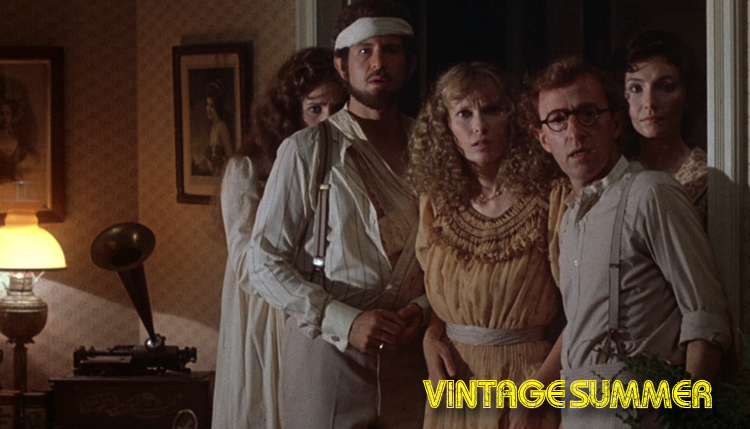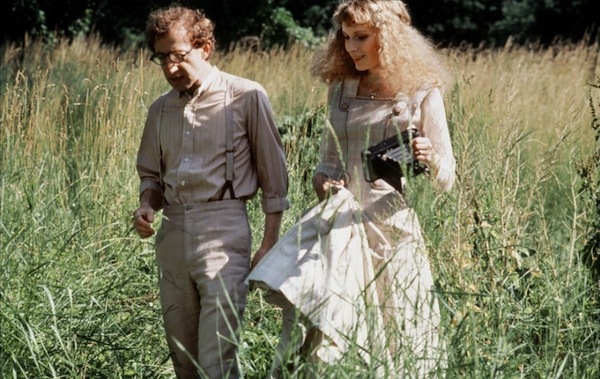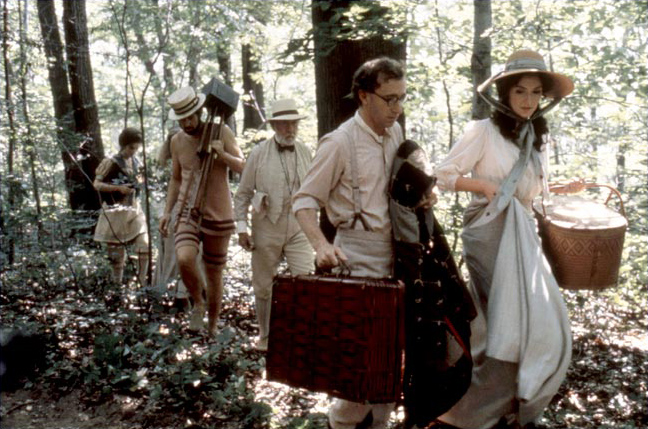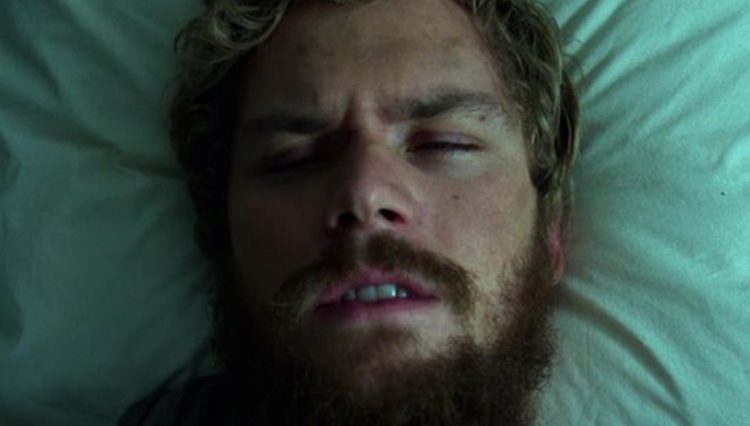
“Marriage, for me, is the death of hope.”
A Midsummer Night’s Sex Comedy, 1982 (Woody Allen), Orion Pictures
Born a little too late to appreciate Woody Allen’s early slapstick comedy, and then the easy transformation to the more thoughtful romantic comedy for which he would become synonymous, A Midsummer Night’s Sex Comedy arrived on cable television at a time with which I would most identify: a middle period in his career that would introduce his new muse at the time – Mia Farrow. A brilliant but under-utilized actress in her own right, she would receive the lion’s share of attention for her work (and unfortunately, her personal life) with Allen. The movie was unfairly maligned as audience enthusiasm dipped after the autobiographical Stardust Memories (1980).
Allen plays a neurotic (of course) inventor, Andrew, married to the beautiful Adrian (Mary Steenburgen) whose cousin, college professor Leopold (José Ferrer) and his fiancée, Ariel (Farrow) are set to join them at their country home for the weekend. Among his startling inventions and flying machines, Andrew has created what he calls a “spirit ball” (a kind of magic lantern), which can communicate with ghosts. Andrew’s friend, Max (Tony Roberts) is also invited, and he brings his latest girlfriend, the youthful and sexually-active Dulcy (Julie Hagerty). Andrew’s sex life with his wife is waning. He keeps trying to initiate sex with her, but Adrian feels as though she might be frigid. Andrew discovers that Leopold’s fiancée was an old flame he never quite got over.

Andrew secretly covets Maxwell’s ease with women. He cries to him about his lack of sex drive. Maxwell recommends hypnosis. Leopold arrives with Ariel and takes an immediate dislike to Maxwell, who starts to put the moves on Ariel. Adrian displays jealousy at the sight of her. When she confronts Andrew, he lies that he never loved her. Dulcy and Leopold develop a mutual attraction to each other, while Ariel and Andrew take baby-steps to rekindle their romance. Maxwell confesses his love for Ariel to Andrew. He wants Andrew to escort Ariel for a late-day rendezvous. Leopold tells Dulcy he is enamored of her and they arrange their own meeting time. Adrian seeks sexual advice from Dulcy, while Andrew consummates his desire for Ariel.

While Leopold is a worldly man of science who disbelieves notions of a spirit world, Ariel is earthy and bohemian, igniting the interest of both Maxwell and Andrew. Maxwell and Leopold nearly come to blows and Maxwell attempts suicide at the thought of their impending marriage. Before the weekend is over, Maxwell will be shot through the heart with an arrow intended for Andrew, and Leopold will die in the throes of passion and his spirit will take up residence in the woods. This contrived plot very much reminds me of Allen’s Manhattan (1979) wherein these dynamics (and soap-opera-style contrivances) are played against the backdrop of a perfect city, or a sumptuous wooded meadow, but lacking the epic qualities and instead embracing what Allen has referred to as “intermezzo.”
This is an unusual period-piece (turn of the century) that, if anything else, demonstrates Allen’s skill at dialogue that needs no particular span of centuries in order to be worthwhile. Images of sprites, spirits, and pixies are conjured by Allen’s characters in the midst of his typical sexual turmoil. Gordon Willis’ photography is exceptional and against the grain of his typically “darker” movies like The Godfather, Klute, and The Devil’s Own. Lush fields and forestry, and gorgeous specimens of nature are given such a beautiful treatment that I was surprised he never received nominations for his work in this movie. He would receive a much-deserved nomination a year later for Allen’s Zelig.



